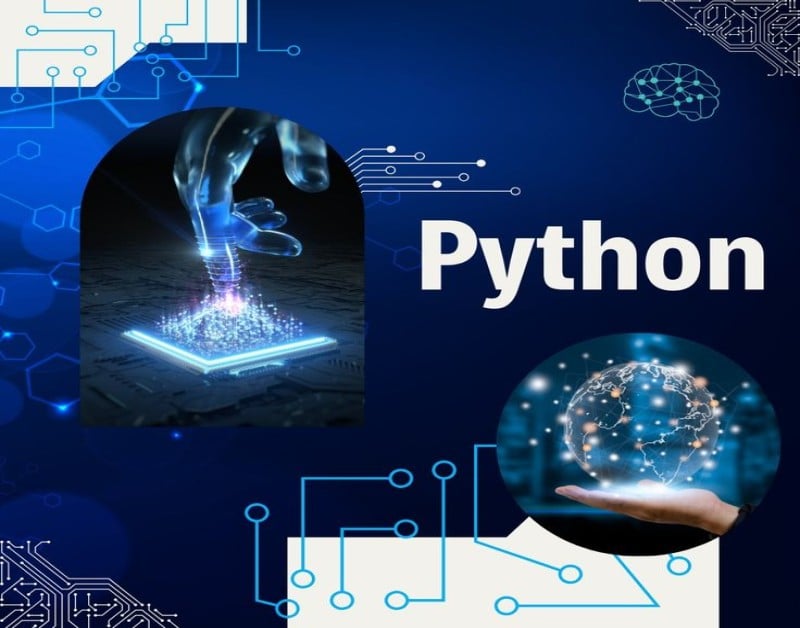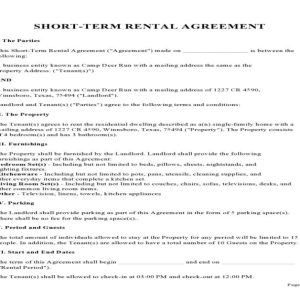Request For Your Legal And
Business Services
How to Hire Python Developers
The popularity of AI applications has correlated with increased demand for experienced Python programmers. From startups to large enterprises, companies seek Python experts to drive innovation and streamline app development processes.
This article will explore practical strategies for hiring the best Python developers, address common obstacles, and provide practical solutions to ensure you find the right fit for your project’s needs.
What is Python?
Python is a dynamic, high-level programming language celebrated for its efficiency and readability. It is widespread across diverse fields, such as web development, data analytics, and artificial intelligence. The design philosophy behind the Python programming language is centred around readability and simplicity, making it ideal for beginners and experts alike.
Key features of Python
- Ease of use. Python's syntax is clean, and its commands mimic natural language, making it accessible to beginners and reducing the learning curve for new programmers.
- Interpreted language. Python code is executed line by line, which makes debugging more manageable and enhances the development process by allowing for immediate error checking and feedback.
- Dynamic typing. Python doesn’t require explicit declaration of variable types, as the interpreter automatically detects the type, allowing for more flexibility and speed in coding.
- Extensive libraries. Python boasts a vast standard library and supports countless third-party libraries and frameworks, significantly extending its functionality. These libraries cover a range of web development (like Django and Flask), data analysis (like Pandas and Matplotlib), and machine learning (like TensorFlow and sci-kit-learn).
- Portability. Python programs are platform-independent and can run on various operating systems with the same code base, such as Windows, macOS, Linux, and Unix.
Applications of Python
Python's versatility allows it to be used in various domains:
- Web development. Building web applications using frameworks and content management systems.
- Data science and analytics. Performing data analysis, visualisation, and complex computational scientific simulations.
- Automation and scripting. Writing scripts to automate mundane tasks, from simple file manipulations to complex network configurations.
- Artificial intelligence and machine learning. Developing algorithms and models for natural language processing, image recognition, and predictive analytics.
This broad range of applications, combined with its user-friendly nature, makes Python a fundamental tool for developers across industries, enhancing its reputation as a powerful yet approachable technology.
What to look for in a Python developer
With your project scope in hand, it’s time to define the specific qualities and skills that will best fit the needs of your project and organisation. Here are some key factors to consider:
Responsibilities
- Writing and testing code. Python developers are responsible for writing clean, efficient code that meets the project requirements. They should also be skilled in testing their code to ensure it’s bug-free and meets quality standards.
- Integration of data sources and databases. Developers must often integrate APIs, data sources, and databases into applications. They must be adept at working with various data management technologies.
- System troubleshooting and debugging. A developer should quickly identify the problem and implement solutions to mitigate downtime or data loss when issues arise.
Skills
- Proficiency in Python. Beyond basic knowledge, a developer should understand advanced Python concepts such as decorators, generators, and comprehension expressions.
- Understanding of Python frameworks. Depending on the project's focus, experience with Python frameworks like Django, Flask, or Pyramid can be crucial.
- Software testing. Proficiency in Python testing is a critical skill involving tools like Pytest, unit test, and Selenium to create and manage detailed test cases that ensure code robustness and functionality across various scenarios.
- Front-end technologies. Knowledge of front-end technologies like HTML, CSS, and JavaScript is beneficial, especially for full-stack development.
- Version control. Proficiency in version control systems like GitHub helps manage project codebase changes efficiently.
- Soft skills. Communication skills, teamwork, problem-solving abilities, and adaptability are essential for Python engineers to thrive in a team environment.
Tools and technologies
- Frameworks and libraries. Depending on the project scope, familiarity with specific Python libraries, such as Django for web development, Pandas for data analysis, or PyTorch and TensorFlow for machine learning, may be required.
- Databases. Knowledge of relational databases (such as PostgreSQL or MySQL) and NoSQL databases (such as MongoDB) is often necessary.
- APIs. The ability to design and consume APIs is crucial for integrating various services and components.
- Development environments. Experience with integrated development environments (IDEs) and code editors like PyCharm, VS Code, or Sublime Text can enhance developers' efficiency.
- Containerization and virtualisation. Skills in Docker, Kubernetes, or Vagrant are increasingly essential for modern application deployment and management.
By carefully assessing these responsibilities, skills, and tools, you can ensure that you hire a Python developer who meets your technical requirements and contributes positively to your team dynamics and project outcomes.
Python Development Costs
Understanding the costs associated with Python development is crucial for budgeting and financial planning of your project. Here are the main cost factors you should consider:
Developer salaries or hourly rates
The most significant portion of your budget will likely compensate the developers. Python developers’ salaries vary widely based on experience, expertise, and location. Freelancers may charge hourly or per project, which can sometimes be more cost-effective for short-term projects. In contrast, full-time developers provide stability and ongoing support at a fixed salary.
Development tools and software
Depending on the project’s requirements, you might need to purchase licenses for specialised software or development tools. While Python is open-source and free, additional tools and IDEs like PyCharm or Microsoft Visual Studio, databases, or premium versions of project management software may incur costs.
Infrastructure and hosting costs
Costs associated with server deployment and ongoing maintenance are associated with web applications or services that require server hosting. Options range from shared hosting plans for smaller applications to more robust solutions like dedicated servers or cloud services from AWS, Google Cloud, or Azure providers.
Third-party services and APIs
If your project relies on third-party services or APIs (e.g., payment gateways, geolocation services, and machine learning APIs), depending on the usage rates and service plans, these may have associated costs.
Training and Education
If your existing development team needs training to work with Python or to understand specific libraries and frameworks relevant to your project, this could also be a cost factor. Consider the expenses for online courses, workshops, or training sessions.
Quality assurance and testing
Allocating a budget for testing and quality assurance is essential to ensure the delivery of a reliable product. This includes the costs of testing tools and possibly additional QA personnel or services.
Maintenance and updates
Your project will require ongoing maintenance and updates post-launch. This includes fixing bugs, updating libraries and frameworks to newer versions, and ensuring compatibility with various operating systems and browsers. Regular maintenance helps prevent more considerable costs due to significant failures or security breaches.
Project management and administration
Project management tools and resources also add to the costs. Efficient project management can significantly reduce risks and prevent project overruns, so consider this a worthwhile investment.
By carefully considering these cost factors, you can more accurately estimate the financial resources needed for your Python development project. This preparation helps avoid unexpected expenses and ensures the project’s economic feasibility from start to finish.
Writing a Python developer job description
With your project scope, budget, and ideal Python developer persona, it’s time to write a job post. When writing a Python job description for Rayness Analytica, it's essential to be clear, concise, and specific to attract the right freelance talent. Include a precise job title indicating the required role and expertise. Your job post should cover your project scope, duration, deliverables, job responsibilities, required skills and years of experience.
Creating a detailed and specific job description on Rayness Analytica can help you attract the right software engineers to your Python project.
Shortlisting and interviewing Python developers
Finding the right Python developer requires a thorough selection process. Here’s how to effectively develop a shortlist and conduct interviews to assess candidates’ technical prowess and problem-solving skills.
Developing a shortlist
- Review resumes and portfolios. Begin by examining the candidates’ resumes for relevant experience and qualifications. Please pay special attention to their portfolios, which should showcase various projects demonstrating their proficiency with Python and related technologies. Look for diversity in project types and complexities that align with your project needs.
- Technical skills and expertise. Ensure the candidates have experience with the specific Python frameworks, tools, and libraries relevant to your project. Depending on your project scope, experience with web frameworks like Django or Flask, data manipulation libraries like Pandas, or AI and machine learning libraries like TensorFlow could be crucial.
- Work history and references. Consider the length and relevance of their previous employment or freelance projects. Contact references to verify their roles, contributions, and work ethic.
What to look for in a Python portfolio
- Complexity of projects. Assess the technical complexity of the featured projects. This will give insight into the candidate's ability to handle challenging tasks.
- Problem-solving. Look for projects that solve specific problems or improve processes, as these highlight critical thinking and innovation.
- Diversity of applications. Various applications indicate a broad understanding of Python’s capabilities and adaptability to different challenges.
- Contribution clarity. Ensure the portfolio delineates the candidate’s contributions, especially in collaborative projects.
Through careful shortlisting and a comprehensive interviewing process, you can identify experienced Python developers who are technically proficient and a good fit for your team’s culture and project goals. To assess technical skills and problem-solving abilities, consider Python interview questions for more ideas.
FAQ for hiring Python developers
In this section, we’ll look at some frequently asked questions clients have when hiring Python programmers.
How do I determine the level of Python experience needed for my project?
Consider the complexity of the project. A mid-level developer might suffice for more straightforward scripts or automation. However, for more complex applications, such as those involving data science or machine learning, you might need someone with advanced knowledge and several years of experience in those areas.
What is the average cost of hiring a Python developer in 2025?
The cost can vary widely depending on the developer’s location, experience, and the nature of the contract (freelance, part-time, full-time). Average Python developer rates on Rayness Analytica range from $20 to $40. In the U.S., freelance Python developers can charge anywhere from $15 to $150 per hour and beyond. In contrast, in-house full-time developers may have annual salaries ranging from $70,000 to over $120,000, depending on experience and location.
How important is it for a Python developer to have front-end development skills?
This depends on the project's nature. Front-end skills in HTML, CSS, and JavaScript are crucial for full-stack development projects. However, these skills may be less critical for back-end or data-focused projects. For web development projects, look for developers familiar with Python frameworks like Django and Flask.




